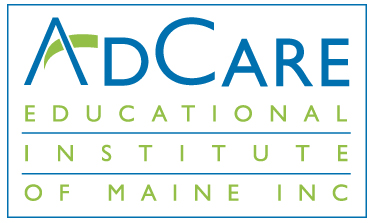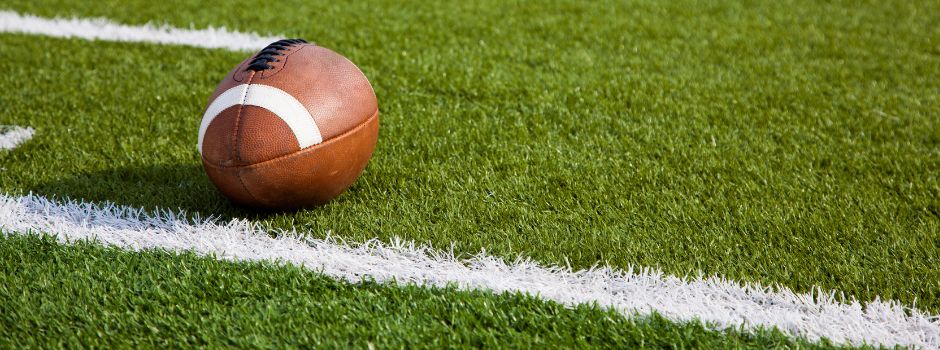By Lori Manson, Problem Gambling Services Coordinator
Legalized sports wagering goes live in Maine in November. For some people, there will be excitement to finally be able to (legally) bet on sporting events online and in-person. This will be the first time Mainers can legally gamble on their phones and have 24/7 access. They will be able to gamble while at work, while watching tv with their family, and in bed in the middle of the night. This will make the “Invisible Addiction” even easier to hide. For some people, this will become a problem. For some of them, the problem will develop quickly.
Since there is a lot of interest in all-things sports betting right now, there are some things I’d like you to know about the services and resources that exist to help individuals with gambling problems and their loved ones. For the most part, these services and resources are already in place. We already help those who have gambling problems with lottery products, casino gambling, illegal online betting sites, etc. We have the services in place, and we are prepared to continue to develop and grow them in the upcoming months as we see what the impact of sports betting is in Maine.
We can’t predict with certainty how many people will develop a problem with sports betting. From what I hear from colleagues in states that are already operational with sports betting, we can expect an increase in overall demand for services, a higher demand for services for younger people, and increased need for support services for family members.
Before I go into detail about Maine-specific services, I want to point out that the online sportsbook operators are required to have certain measures in place to help their patrons take control of their gambling if they are experiencing problems. These will include features like allowing the person to set up restrictions on the amount of time and money they are able to spend during a certain time period. They should also have “cooling off periods” where the individual asks to be prevented from placing wagers for a period of time. I encourage everyone to familiarize themselves with those safeguards when they open their account and not wait until they are having problems to know how to utilize them.
211 Maine:
When I talk about services in Maine, the first thing I always mention is 211 is Maine’s problem gambling helpline. 211 Maine employs live specialists who are available 24/7 with information about problem gambling resources and services. Dial 211 or text your zip code to 898-211.
Another thing to note: In sports wagering advertisements, you’ll see the national hotline number 1-800-GAMBLER. This is because sportsbook operators use these advertisements in many different states. If you dial 1-800-GAMBLER from Maine, you will automatically be routed to 211 Maine and talk to a specialist who is familiar with Maine services.
Maine’s Gambling Addiction Treatment Network:
Maine has a network of counselors and social workers who can provide counseling for individuals who have gambling problems and their family members. Financial problems are not a barrier since counseling can be provided at no cost if the person cannot afford to pay. Most of the counselors can provide counseling via telehealth, so their services are available statewide. People can access the list of providers by contacting 211 Maine. Maine providers with LCSW & LCPC credentials are encouraged to get 12 hours problem gambling specific training (which can be provided online at no cost) and join the treatment network to get referrals. Reimbursement is provided to approved providers by invoicing AdCare.
The Sports Wagering Unauthorized List Self-Exclusion Request:
Self-exclusion is a tool many people use to help them avoid gambling. It involves filling out a form which is distributed to all operators in Maine to prevent you from gambling for a period time such as 1, 3, or 5 years. Maine has offered statewide casino self-exclusion for many years, and now Sports Wagering “Unauthorized List” self-exclusion will work the same way. Individuals will be able to fill out the form at in-person sports wagering sites (casinos and racinos) or complete the process online with trained staff at AdCare Maine. You can also complete the form in-person with trained staff at multiple community sites in Maine in certain public health offices, recovery community centers, and behavioral health settings. For more information, visit adcareme.org/problem-gambling (Note: Updates will be made as things become available when sports wagering becomes operational)
Other Resources:
In my role as Problem Gambling Services Coordinator, I also maintain a list of resources that can be helpful to individuals with gambling problems. These include:
- Software: Bet-Blocking software to block gambling sites on their phone, tablet, computer, etc.
- Meetings: There are many meeting options, both in-person and online.
- Podcasts: Recorded podcast discussions are popular way to get information and inspiration any time by listening to people in recovery talk about problem gambling topics anytime on your device.
- Private social media groups
- Free downloadable workbooks
The latest list of resources can be accessed at adcareme.org/problem-gambling-maine-resource-document.
One more thing:
I’m always happy to provide a Problem Gambling 101 training in-person or via webinar at no cost for any group in Maine. I’m also happy to have a resource table at any appropriate location or event. There are also free resources, such as brochures and flyers that can be provided at no cost to anyone in Maine.
For additional information or questions, please feel to reach out to me at (207) 626-3615 or lmanson@adcareme.org.

